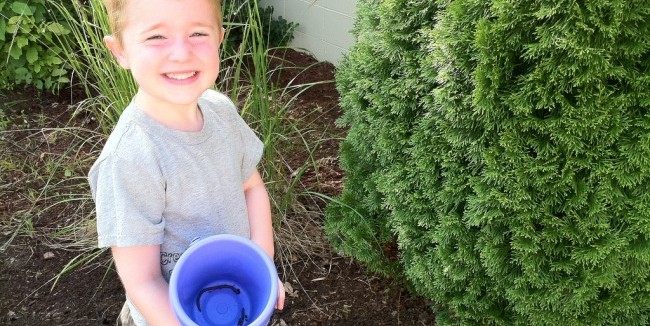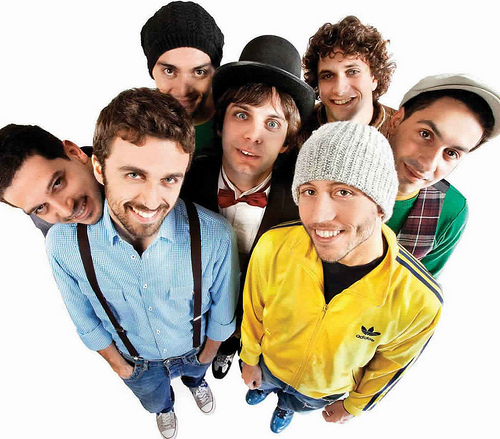 Opening the door for someone or ushering another across the street might be a big help for the people you’re assisting. But such altruistic behavior can also be a big help for yourself. Research, religion and even recovery programs focus on the concept of being of service to others, a move that gets you out yourself and away from your stress, anxiety, paruresis and other woes.
Opening the door for someone or ushering another across the street might be a big help for the people you’re assisting. But such altruistic behavior can also be a big help for yourself. Research, religion and even recovery programs focus on the concept of being of service to others, a move that gets you out yourself and away from your stress, anxiety, paruresis and other woes.
Altruism Research
A five-year study that checked out the benefits of altruism was published online at the American Journal of Public Health. The study aimed to test the theory that helping other people would reduce the stress levels and increase the lifespan of those providing the help.
Study authors decided to check this one out due to the proliferation of studies that have continuously associated stress and isolation with high levels of mortality and morbidity. They wanted to see if the opposite were true.
So they examined 846 subjects, all of whom were from the Detroit area. Interviews with the subjects asked about activities over the past year, namely if the subjects experienced any high-stress situations and if the subjects had helped others. As would probably be expected in most people’s lives, plenty of high-stress experiences did crop up, inclusive of financial problems, job losses, burglaries, illnesses and the death of family members and friends.
Subjects also chimed in with various ways some had helped out others, typically relatives, neighbors or friends. Many had provided assistance with things like shopping, child care, housework, transportation or running errands.
Repeated questioning over the half-decade led researchers to a notable conclusion:
“…[W]hen dealing with stressful situations, those who had helped others during the previous year were less likely to die than those who had not helped others,” PsychCentral writes in an article outlining the study.
The lower mortality rates, researchers surmised, stemmed from the reduced stress levels the people enjoyed. And that decrease in stress came from the simple act of giving someone else a hand.
Altruism in Religion
Altruism, or the idea of giving while expecting no reward, is a Buddhist ideal. Folks can also find references to altruism peppered throughout the Bible, from the idea of forgiving all debts after seven years to the ongoing theme of giving unto others. Judaism promotes it as “the desired goal of creation.” The Concern for Human Rights Future blog points out that altruism pops up in the earliest of religions, and not necessarily to promote being kind at heart:
“Ancient religions, including the Abrahamic religions and Confucianism, were developed where cooperation was necessary for survival,” the blogger explains.
Those who crinkle their noses at religion need not worry. This is not to say that you must follow a religion to be altruistic, it’s just meant to illustrate that being of service has long been an underlying theme in various religions all over the world.
Altruism in Recovery
Certain recovery programs rely on altruism as a means of healing and overcoming addiction. Being of service to others remains one of the core foundations in a number of long-standing programs that have helped millions recover from all types of addictions, thanks to the positive side effects that come from helping others.
And just like altruism in religion, you don’t have to be suffering from addiction or focusing on recovery to engage in or reap the rewards of all things altruism brings.
Rewards of Helping Others
In addition to the reduced stress and longer lifespan mentioned in the research, helping others with no expectation of reward can bring on a bevy of other benefits. These include:
- Getting you out of your own head
- Increased production of feel-good chemicals such as dopamine
- Increased production of “compassion hormone” oxytocin
- Increased immune functioning
- Improved cardiovascular health
- Decreased anxiety and threat of depression
- Decreased symptoms of paruresis and other anxiety-related issues
- Increased confidence and self-esteem
- Increased life satisfaction
What Counts?
Helping others can certainly consist of volunteering for your favorite organization on a regular basis, but it can also consist of smaller, less-obvious things that still bring on the benefits.
As pointed out by PsychToday blogger Carrie Barron, helping others can include “public gestures” as well as “private moments,” both of which count as giving. The pubic gesture side may be obvious. Marching for a cause. Baking for a fund-raiser. Donating your time and items to a hurricane victim rummage sale.
The private moments may be a little less obvious, but Barron notes they are equally as significant. She cites leaving a generous restaurant tip, buying groceries for a pal or, yes, ushering someone who needs help across the street.
“Maybe you two are the only ones who will ever know about it and that is OK,” Barron writes.
Sometimes just showing up at an event or lending a listening ear is enough. You might also find ways to help at your job or based on your profession. Artists can create works to donate to auctions. Bus drivers can forgive or pay the fare for an overworked mother hauling three kids onto the bus. Customer service reps may go that extra mile to assist a customer that would otherwise have been out of luck.
All of it counts. In fact, there’s really only one rule when it comes to helping others if you are to reap the benefits. It has to be authentic. You honestly have to want to help.
Providing help when you’re forced to, resentful about or feeling exploited can actually backfire, making you feel much worse than when you started. It can also make stress levels skyrocket instead of wane and all other potential benefits fly out the window.
The key is to have the desire and then put it into action, no matter how large or how small, whether preplanned or spontaneous. Reaching out and connecting in such a positive way is never too small to go unnoticed.
SOURCES:
- http://www.psychologytoday.com/blog/the-creativity-cure/201310/doing-good-0
- http://psychcentral.com/news/2013/02/06/doing-for-others-also-benefits-health-of-altruistic/51274.html
- http://www.buddhisma2z.com/content.php?id=12
- http://thewildwebster.wordpress.com/2011/06/04/altruism-in-the-bible/
- http://concernforhumanrightsfuture.wordpress.com/
- http://www.huffingtonpost.com/2011/07/28/health-benefits-of-volunteering-helping-others_n_909713.html#s316120title=Thoughts_of_Giving
Photo Credit: thefieldswired via Compfight cc




